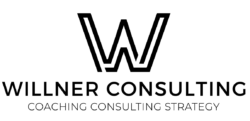What can we learn about decision-making in times of extreme uncertainty?
Many of my clients today feel stuck, almost paralyzed, by the weight of big decisions in a world that’s rapidly changing. With unclear outcomes and unpredictable variables, it’s no wonder they feel overwhelmed and hesitant to act. This kind of stuckness isn’t just frustrating -it’s exhausting. And I get it.
I’ve faced it myself:
Changing study path, moving abroad (and back… and abroad again), getting married, deciding to have children when the circumstances weren’t “perfect,” investing in new education, starting a business. None of these came with guarantees. None of them ticked all the boxes. But I moved forward anyway. Not because I had certainty -but because I -eventually- had clarity. But some of those initial decisions took a lot of time and courage.
How Do You Decide When the Outcome Is Unknowable?
That’s the question Annie Duke, former World Series Poker Champion turned decision scientist, explores in her Big Think interview with Danny Kenny:
➡️ “When to Quit: A Simple Framework for Life’s Toughest Decisions” – Big Think
Duke argues that decision-making under uncertainty is not just intuition; it’s a teachable, improvable skill. Yet it’s one most of us are never taught.
What really resonated with me was her concept of “resulting”, referring to our tendency to judge the quality of a decision by how it turned out. A good decision can lead to a bad outcome due to factors outside our control. And sometimes a poor decision gets rewarded by sheer dumb luck.
“There are only two things that determine how your life turns out,” says Duke. “One is luck, which we don’t have any control over. And second, where you land in that range of possible outcomes is going to be determined by the quality of your decisions.”
The Decision That Changed Everything: A Real Story from the Article
In the same article, a Big Think contributor shared their own tough call: continuing a PhD abroad despite burnout, financial precarity, and lack of institutional support. It wasn’t until they encountered Duke’s work, specifically her book Thinking in Bets (2018), that things started to shift.
“Instead of trying to predict whether staying or leaving would work out better, I needed to focus on making the best possible decision with the information I had, knowing I couldn’t control the outcome.”
This shift, focusing on process over prediction, was liberating. It gave them back agency. It also mirrors the kind of guidance I offer my clients: not to eliminate uncertainty, but to engage with it more skillfully.
A Framework for Quitting (or Continuing)
In the interview, Duke offers a simple yet powerful 3-step framework for evaluating when to quit:
- Set a decision point or deadline in advance.
- Map out best- and worst-case scenarios.
- Forecast success probabilities based on current evidence.
It’s not flashy, but it’s transformational.
In coaching, I encourage a similar approach:
🔹 Set a mental deadline.
🔹 Gather relevant data.
🔹 Clarify your values.
🔹 And -crucially- practice self-compassion, because that makes it easier to be brave.
We often forget this: staying stuck is also a decision. And usually, it’s the most draining one of all.
The Missing Curriculum
We don’t teach decision-making in school, not in a structured, skill-based way. But what if we did?
That’s why Duke co-founded the Alliance for Decision Education, aiming to make decision science part of the K–12 curriculum. Because, as she says, the quality of your decisions equals the quality of your life.
In Closing: Clarity Over Certainty
Some of the decisions I’ve made have turned out brilliantly. Others… less so. But all of them have moved me forward. Every choice, whether perfect or imperfect, helped me learn and evolve.
We may never have all the answers. But we can always improve the way we ask the questions and how we weigh the options in front of us.
If you’re navigating a tough choice right now, I highly recommend Annie Duke’s book Thinking in Bets (2018).
And if you’re interested in more of these science-backed insights, check out the full article and subscribe to Big Think’s Substack here:
➡️ Share “When to Quit” on LinkedIn
➡️ Subscribe to Big Think on Substack



